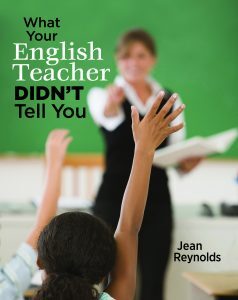Trooping Along

Instant Quiz
Can you correct the error in the sentence below? Scroll to the bottom of today’s post for the answer.
One of my students asked me a good question: “Instead of making us take notes, why don’t you just give us a handout with the information we need”?
_________________________________________________________________________________________
Today I’m going to give you a glimpse into what lexicographers do. (They’re the professionals who add, delete, and edit dictionary definitions.)
One recent Saturday morning before the Russian invasion of Ukraine, I heard a startling remark during an MSNBC conversation between host Ali Velshi and journalist Erin Laughlin. Laughlin was saying that “So far, not a single Russian troop has been seen.”
We were hearing English change, right before our eyes. For some years now the word troop has been acquiring a new meaning and usage. I’m sure that lexicographers were very interested in that MSNBC broadcast!
Here’s what I mean. When I was growing up, troop always referred to a group of soldiers or Girl Scouts or Boy Scouts. I belonged to Girl Scout Troop 4 in Bethpage, New York. Sometimes several troops would get together for an activity. Five troops might include 50 or 60 Girl Scouts.
Nowadays, though, troops means “soldiers.” For example, here’s an excerpt from the December 15 New York Times. The subject is the American military withdrawal from Iraq:
Although Thursday’s ceremony represented the official end of the war, the military still has two bases in Iraq and roughly 4,000 troops, including several hundred who attended the ceremony. At the height of the war in 2007, there were 505 bases and more than 170,000 troops.
That 170,000 troops means 170,000 soldiers.
What’s so exciting (or disturbing, depending on your point of view) is that Erin Laughlin used troop as a singular word to mean “one soldier”: “not a single Russian troop has been seen.” That’s new! I haven’t heard anyone else use “one troop” that way. (Back in 1955, we would have thought she meant “not a single Russian military unit has been seen.”)
I can guarantee that Erin Laughlin’s remark was recorded and noted in a vocabulary log. If many more people start using troop that way, eventually we’ll get a new dictionary entry.
And that, folks, is how dictionaries are updated.

_____________________________________________________________________________________________
Instant Quiz ANSWER
You can hear the question mark in the student’s voice. That tells you to put the question mark inside the quotation marks. (If the student hadn’t been asking a question, you’d put the question mark outside the quotation marks.)
I had to stop and think about this question from one of my students: “Instead of making us take notes, why don’t you just give us a handout with the information we need?” CORRECT
Here’s a sentence where the question mark belongs outside the quotation marks:
Did the recipe say, “two tablespoons of cornmeal”? CORRECT
What Your English Teacher Didn’t Tell You is available in paperback and Kindle formats from Amazon.com and other online booksellers.
“A useful resource for both students and professionals” – Jena L. Hawk, Ph.D., Mississippi Gulf Coast Community College
“Personable and readable…Jean knows her subject forwards and backwards.” – Adair Lara, author of Hold Me Close, Let Me Go
Jean Reynolds's Blog
- Jean Reynolds's profile
- 2 followers





